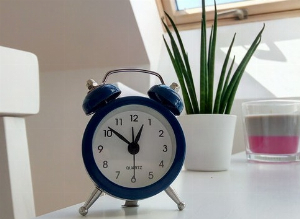60% of chronic patients feel alone: 5 solutions to help patients and their families
Published 23 Jan 2019 • By Louise Bollecker

Study conducted in January 2019 with 1531 Carenity members in France, the United Kingdom, Italy, Spain and the United States.
Having a chronic illness or caring for a patient is often a factor of isolation and loneliness. Carenity aims to overcome this loneliness, that's why we wanted to give you the opportunity to speak out: what is the impact of a chronic illness on the loneliness experienced by the patient or their caregiver? How can we feel less isolated? What solutions can be implemented to be more listened to and understood? Here are your answers.

60% of patients feel alone in the face of illness and misunderstanding
60% of patients responded in our survey that they felt "very much" or "very much" alone. Having a chronic disease puts a heavy burden on patients' daily lives. It is difficult to explain how you feel to people who do not share your suffering, especially since treatments can be restrictive, preventing you from going out to dinner or taking a family walk, for example.
Indeed, many members told us about the intense fatigue that undermines their energy and thus their sociability, as well as the pain that paralyzes them: 54% of patients feel that they would feel less alone if they were less tired, and 53% would feel less alone if their illness was less painful. The symptoms of their illness can thus physically prevent them from leaving home and, in fact, isolate them. Also, for some members they feared going out in case, "I have a flare-up and can't handle it" thus increasing their isolation.
>> Join our forum dedicated to pain treatment
Beyond these disabilities, patients especially lament the lack of understanding they experience, especially when the disease is not externally visible. Outsiders do not understand the severity of their illness: "This disease is "invisible" and you find yourself alone dealing with the pain, the people around you just have the impression that you are constantly complaining and adding to it". Many patients do not or no longer dare to discuss the subject with their loved ones, for fear of being even more isolated: "My family and friends do not know the severity of the disease. I try not to bother my family with this," said one patient. Explaining your condition to those around you is a daily challenge that, after a while, can lead patients to isolate themselves.
45% of patients even hid their illness from those around them so as not to worry them, so as not to be pitied, to get a job or custody of the children, but also, as one patient summarised it, because "in the face of ignorance, misunderstanding, shortcuts, I am exhausted".

Patients' relatives, more isolated than the patients themselves: 60% of patients and 63.2% of relatives feel alone
While 60% of patients feel alone, no less than 63.2% of the relatives surveyed feel "very much" alone.
>> Being the carer of someone with Alzheimer's - read the testimonial
In the United Kingdom, the gap between patients and their relatives is even greater: 68% of patients feel alone compared to 80% of relatives! Are patients' emotions taken into account by health professionals more than those of their caregivers? They must also keep a calm and controlled environment to disturb the patient they help: "I feel close to my wife, together we remain united, but when faced with the extent of the illness that deprives her of her mobility, I feel alone because I have to manage everything, without disturbing the morale of my wife who needs calm and tranquility," explains one member.
Family members often set aside their activities to care for the patient. They see less of their friends and are sometimes misunderstood, even though for 80% of caregivers, it has never been a question of hiding their loved one's illness. Perhaps the worst rejection remains that of the patient being helped himself: "their affection for me has decreased significantly because of her struggle with her illness," said one respondent.

The daily lives of patients and their caregivers are disrupted by the disease
Only 14% of patients and 20% of relatives did not reduce the frequency of their sports sessions, outings to the city or restaurants. A large majority of our members have seen their daily lives directly affected by the disease: 67% of patients have reduced the frequency of their physical activities, 59% have slowed the frequency of eating out and 57% have slowed down their social outings. For their relatives, 53% go to restaurants less often and 52% have limited the number of trips they make. Some diseases can lead to the adoption of a particular diet, fatigue and treatment that is too restrictive to continue outdoor activities. Slowing the frequency of these activities is not insignificant: it helps to isolate patients and their caregivers, leaving them with little breathing space away from the disease.
Almost all patients and relatives surveyed saw an impact of the disease on their daily lives: 98% of patients consider that their social life has been disrupted by the disease and 96% of relatives have seen an impact on their family life. Even the professional lives of the participants in our survey were disrupted for 81% of patients and 77% of relatives. It is difficult for patients and their loved ones to ignore a disease that prevails in all aspects of daily life. One member said, "I struggle to leave the house, it is very frustrating dealing with a lack of mobility".

Family, a bulwark against the loneliness of patients and their loved ones
While the feeling of loneliness is shared by many, our members have put in place solutions to protect themselves from it. Despite the difficulties in explaining the disease, 40% of patients still see their family as a way to help them feel less alone but they do feel the pressure to "be strong for my family". For 31% of them, friends are also a major help - and even virtual friends since 31% believe that Carenity allows them to fight loneliness. A close environment for patients is therefore essential in making them feel supported and understood. Moreover, for 38% of respondents, including more relatives in the care pathway would be a solution to feel less alone.
On the caregiver side, it is Carenity that makes you feel less alone (31%). Next come family (29%) and friends (28%). Forums (26%) and patient associations (20%) are also popular solutions for caregivers looking to learn more about their loved one's condition and improve their daily lives.

The ambiguous role of physicians and health professionals
The relationship between patients and their doctors is not always a harmonous one. 27% of patients feel close to their doctor and consider that they makes them feel less alone. 39% of all our respondents consider health professionals to be attentive to their difficulties: trust in doctors is even the majority in Spain, where 52% of patients and relatives consider their health professional to be attentive.
In contrast, in the United Kingdom, this encouraging score falls to 28%. Faced with the doctor's lack of time during consultations and his potential lack of empathy, many patients and their caregivers do not dare to discuss the subject of their loneliness. "The medical system doesn't take me seriously," complained one patient;"there are few medical responses to pain," says another;"no health professional has taken the time to listen to me," adds another member.
>> 70% of patients lie to their doctor - find out why!
For 37% of Carenity members, getting longer and more regular medical appointments would be a good way to feel less alone. In the United Kingdom, a majority of members (56%) believe that this would be necessary. Without questioning the essential role of the doctor, our members seem to advocate for a more peaceful and humane relationship of trust.

In short: 5 solutions to be better understood and supported
In the face of isolation, our members, whether close or patient, gave us their ideas to improve their daily lives. Here are the five solutions they classified:
1: Make the general public aware of the various chronic diseases: this would help to avoid ignorance and clumsiness on the part of outsiders (51%)
2: Benefit from psychological support in order to express emotions as a patient or family member (39%)
3: Include family members in the care pathway to share the burden of chronic disease and support patients and caregivers (38%)
4: Have longer and more regular appointments so that the doctor is a real support in the face of the disease (37%)
5: Have more information on discussion groups and associations: 72% of patients and their relatives did not have access to them (36%)
On our side, we are proud that Carenity helps 66% of you feel less alone! We will continue our efforts to help you find support and useful information.
And do you feel isolated?
What solutions have you implemented?
Carenity
14 comments


 Facebook
Facebook Twitter
Twitter





